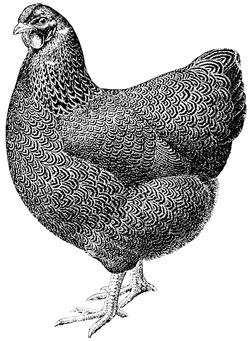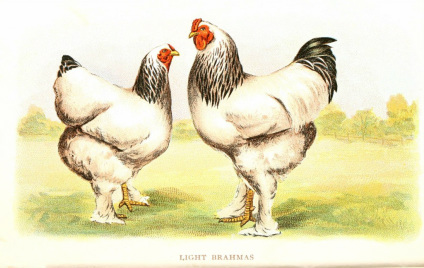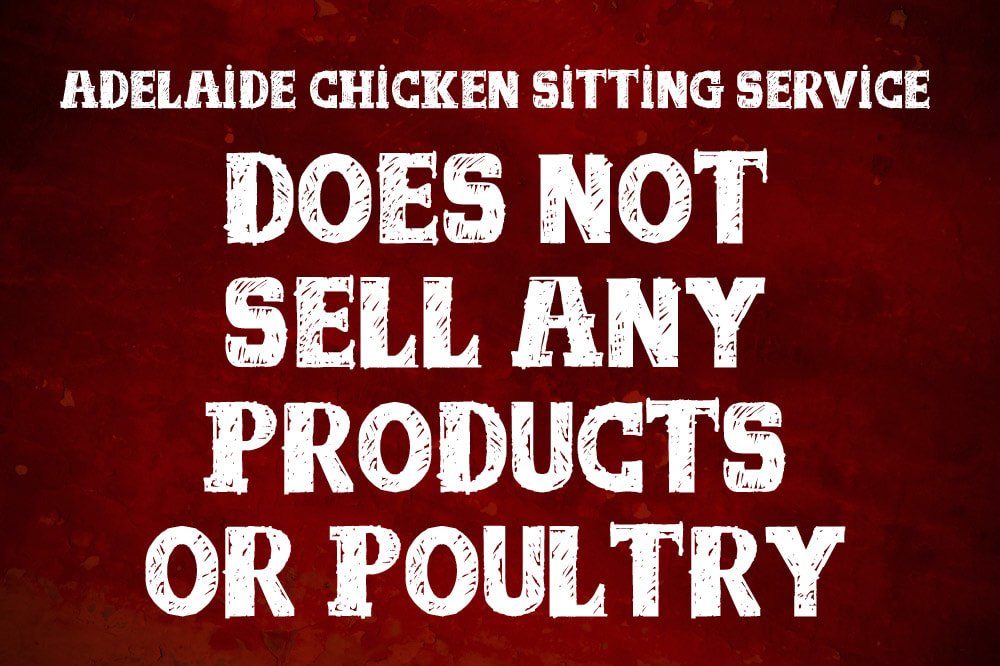
This doesn't mean that there aren't people who are more than willing to take these chickens from time to time. Its just that they are so far and few between that they really are gold when you find them. Its all about networking.
I have been in that same fix with a previous flock of Isa Brown and fluffy white Bantam hens who were no longer laying. Seven non-laying chickens with various health problems due to being rescued from a neighbour's property was a lot to sustain with no eggs in return.
I have managed to change my flock breeds over time as I have learnt which breeds suit me the best. But there is one common issue with all of the enquiries I have received...all of the enquires are about Isa Brown chickens. There is a theme going on here...
The Isa Brown breed I will explain in a lot more detail another day because there are so many issues with bringing this common backyard chook into our suburban backyards. If we are not prepared to eat our chickens then we do need to be prepared to sell them or give them away. Isa Browns are not ideal for cooking as they are quite lacking in any meat. Not the type that would ever make it the table as a roast (much to many people's relief).
STOPPED LAYING?
- If your chickens are daily laying (egg only) hens such as the Isa Browns and have dropped off laying in the cooler months of the year, this is normal and should not be interpreted as a hen who has ceased to lay. Come the warmer months they go back to their normal routine.
- Egg production in daily egg layers (e.g. Isa Browns) usually have a 2-2½ year laying period. They rarely lay after 2½ years.
- You can encourage your chickens to lay a little more by offering small amounts of Meal Worms and Live Culture Yoghurt twice a week.
- If your chicken is under 2 years of age and has ceased to lay then I strongly recommend that your local vet to check out their health as there may be other issues at play such as being Egg Bound.
- Do not expose your hens to a rooster in hope of using them as breeding hens in their retirement years.
Firstly, the rooster will not help to encourage any more laying, and secondly, if eggs are fertilized the shell walls are far more brittle and porous which can result in a high chick mortality rate (no hatching).
TOP SELLING TIPS
- Try to sell them when they still lay but have dropped off significantly in their regularity.
- Do not sell sick or diseased hens.
- Make sure worming and dusting for lice, mites and flees are up-to-date.
- Roosters are often a 'give away'.
- Don't sell them during their moulting period. Presentation is important at point of sale.
WHERE TO SELL
- Facebook Groups
A great place to start is with: Feathered Friends - Advice, Sales & Feedback in South Australia
From there you will find many other breed and location specific groups - Poultry & Livestock Auctions.
These are the best option! These auctions occur once a month in many of the country towns. Contact local district councils for their dates and how to register your flock for sale. People who buy from these auctions are usually aware that the hens may nearing the end of their egg laying life and may just want them for their companionship and garden bug control. - Do not sell old hens on the Gumtree website (if you get upset easily).
This is a good site for new hens but not for the older ones. Many of my clients have received rude calls from their ad on Gumtree and have since pulled their adds. If you resolve to do it, Gumtree is still a good place to list chickens. - Network and sell through online Australian Poultry forums.
This is where your buyers are. Someone will know someone who may be willing to take your hens. - Network through family and friends.
You may have already tried this, but often they are the most likely to take them especially if they are located in a semi-rural community or have a larger than average house block. - Other sources may include Agricultural colleges, Veterinarian schools and the RSPCA as a last resort.
DO NOT DUMP UNWANTED CHICKENS ON SCHOOL AND KINDERGARTENS, PLEASE.
Make sure your hens are in the best of health before moving them on.
They should have:
- Clean, smooth legs - no leg mites
- Bright wattle and comb
- Comb not flopped over (unless Meditteranian breed specific)
- Bright eyes
- No swellings of the abdomen beneath the vent
- No lice or mites
- No sneezing or discharge
- Clean bottom
- Not recently sick or on antibiotics
- Bright disposition - not hunch or unwilling to scratch and peck around
- No blood in their droppings
If your hens display any of these signs, they are unwell and should not be sold/given away at this point in time. Resolve their health issues before moving them from your property for good biosecurity.
I don't want anyone to give up on their desire to own chickens. There is nothing more satisfying that own hens who give back to us in three ways: eggs, manure, bug control and friendship.
- Don't choose the Isa Brown breed. Opt for a Black Australop, Banrvelder or Bantams as daily egg layers.
- Move away from daily egg laying hen breeds. Opt for (egg/meat) Light Sussex, Barred Plymouth Rock or Wynadottes.
- Choose the right breed for you.
Will you eat them? Opt for an egg/meat breeds.
Will you use them for breeding? Do this around one year of age.
Are you willing to keep them for the long term and accept that one day they will die? - How many do you need/want? Have more hens who lay less often. In turn they have a longer life.
- Get to know a really good Vet who deals with chickens - and use them at least once a year.
Not all vets will treat chickens. Mobile vets tend to be the best by far. They can also see the conditions that your flock are living in to make a far better health assessment. - Buy your poultry from a good breeder, rather than a fodder & stock store.
Find breeders in your area of Australia via the BackYardPoultry Noticeboard.
A 'good' breeder will take back any bad stock or accidental roosters.
These breeders have the other poultry breeds that the fodder & stock stores don't stock.
PREPARING FOR NEW CHICKENS
If you are selling all or only part of your flock you still have a matter of house keeping, or coop keeping.
Before welcoming any new poultry onto your property you will need to give the coop a thorough clean-out to prevent any contamination from the previous flock. Lice, mites an fleas are the top nastiest. Worms in old chicken manure can also be a risk. It comes under the header of Bio-Security. There can be all sorts of diseases left behind.
Remember to isolate your new flock from any existing flock for the first fortnight. This is to ensure that your new hens are disease free and that you hens have a softer introduction to one another for the new pecking order.
If the prospect of a thorough coop clean seems a little too daunting or physically difficult for you, book me for your next Chicken Coop Cleaning.
Janine




 RSS Feed
RSS Feed